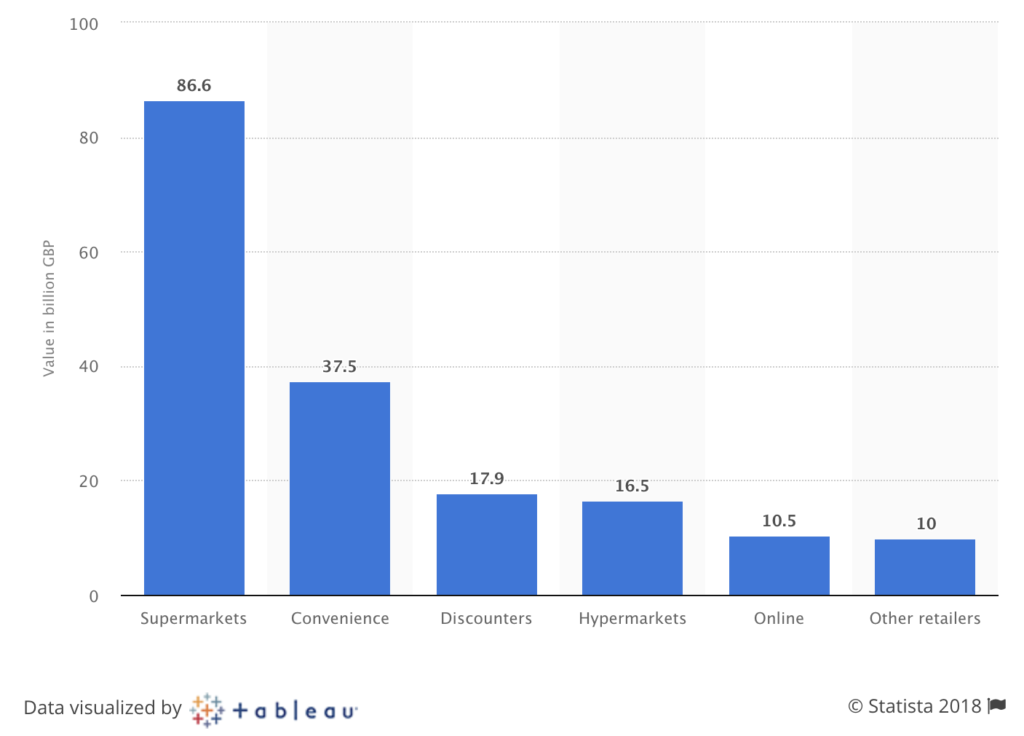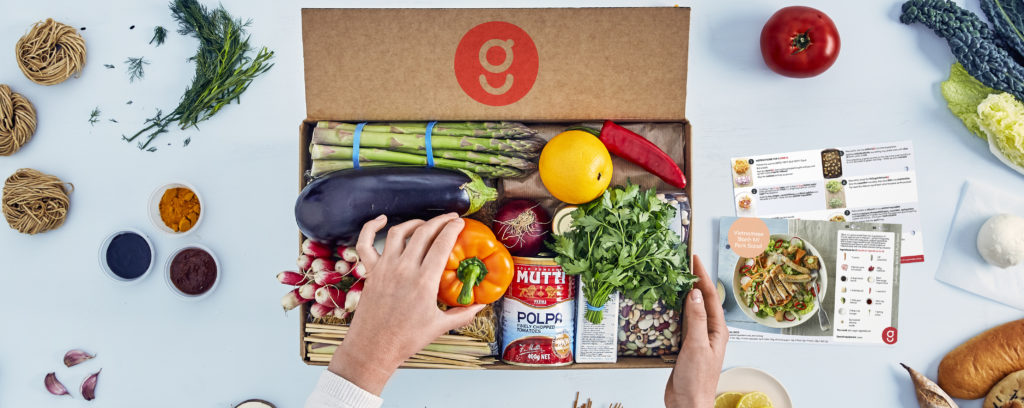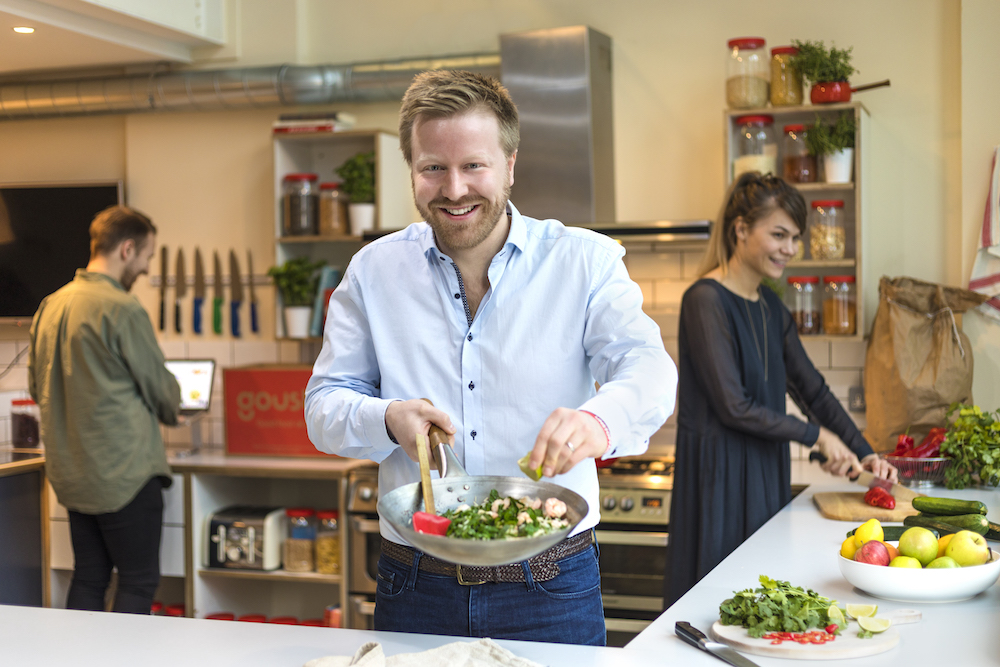Gousto CEO Timo Boldt is on a mission to change the way consumers order fresh food.
Ultimately, he wants people to stop shopping at their supermarket (physical and online) and use his service.
It’s easy to see why his firm, described as ‘a data and technology company that happens to trade in food’ has bagged investment from a range of institutional investors to the tune of $77 million so far.
What is Gousto?
The firm delivers boxes of ingredients to consumer’s homes which are used to create home-cooked meals without the need for a trip to the supermarket.
And the firm claims to use fewer plastics and less food waste than its rivals – appealing to consumer’s growing ethical concerns.
Its revenue shot up 77 per cent in October 2017 as it looks to solve the problem of expending time and effort of traipsing to the shops to buy tea, tomatoes and tofu.
Here, the company’s CEO talks through what separates it from the competition – the major supermarkets – which he calls ‘outdated’ as well as recipe boxes Hello Fresh and Mindful Chef.
Artificial intelligence and machine learning
‘We apply AI and machine learning roughly to three areas of intellectual property (IP).
‘The first one is consumer-facing, which is personalisation, i.e. what you should see is completely different than what I see.
‘Secondly we are applying AI to the back end, so the automation factory supply chain.
‘And then thirdly, which connects personalisation and supply chain, is forecasting, which sits in the middle.’
He concludes, ‘You have to take account of what consumers are buying, looking at, how they’re rating it, and you then have to translate that into orders, which then powers your back-end system.’
He says the company wants to create value for customers where it really matters, otherwise, ‘we’re just building tech for the sake of tech’.
He makes the startling admission that 40 per cent of all the meals the company are selling are recommended by AI; not Gousto.
‘AI is now identifying gaps in our menu and is pretty much telling us ‘look, you could make those – there’s a customer segment of – 15 per cent of customers would love to have XYZ on the menu, why don’t you go and design it?’
‘We’re not yet done the recipe where AI has said, ‘you should cook the pasta for nine minutes and you should design the tomato sauce using basil and olive oil but not will too much salt’.
‘AI is helping us answer key questions we have like, ‘what are the trends’, ‘what are the gaps’, ‘what do people really want and ‘why do they want it’? For example, people obviously aren’t passionate about something plain like pasta but they might be passionate about chorizo which is much more polarising.
He concludes, ‘So it’s research and development and innovation through AI which we then try to translate to the kitchen into food development.’
Has a machine ever come up with a new recipe on its own and learnt from its past experiences, and its had to accept or rejected that idea?
‘That’s actually a great idea, he says. ‘I’ll get my guys to look into when we can have our AI create recipes; that will be super fun.’
Further reading on entrepreneurs
- Entrepreneur interview: Jamie Ward, CEO and co-founder of PayAsUGym
- Entrepreneur interview: Michal Szlas, CEO and founder of OTTY Sleep
- Gousto: Five years of success, five important lessons
Vertical integration
Vertical integration as a business strategy is continuing to be key for lots of businesses. Is Gousto now part of the trend to control more than one stage of the supply chain.
‘Gousto is vertically integrated to a large extent’, he says.
‘However, we do not own the delivery fleet and we don’t own farms. So we have integrated farmers and supply chain and fishmongers, and we work as partners with them and we aim to have strategic long-term partnerships. But we don’t buy farms.
See the market value of grocery retail in the UK in 2016

Delivery and courier
Gousto offers seven-day delivery options for consumers as well as morning and evening slots (depending on where you live.)
‘To fulfil that we work with a number of partners, six delivery companies for certain parts of the UK. And then our guys are helping them to apply data and data science to make the depots and decision-making smarter. I’m pretty sure we’ve used every single parcel service at some point, it’s test and learn.
‘We also collaborate with delivery companies who, for example, are sending ASOS parcels to the Highlands in Scotland. We say, ‘why not just take the Gousto box as it seems a lot more efficient, versus us also sending a truck to the Highlands.
‘So that’s been our philosophy: it doesn’t make economic sense, it doesn’t really make customers happier, so let’s just use the existing fleet.’
Does he have a favourite delivery service that he uses?
‘It really depends on the people that work at the companies, if I’m honest; some of the management teams are really amazing and they’re innovating for us and they’re obsessing about our customer and they’re super-responsive.
‘And then you work with a courier service that top management has left and they’re still recruiting the guy who runs the depot and stuff is not really well managed. But that’s a tiny topic for us; the error rate on deliveries is far under 1 per cent which is industry leading.
“Our on-time, in-full numbers are much better than Tesco or Ocado so I’m pretty pleased with how the delivery is going”

Brexit
Whatever the outcome of Brexit, the UK food industry business looks particularly vulnerable, as over half of Britan’s food is imported, according to a study conducted by researchers from institutions including the University of Aberdeen.
Boldt is pragmatic and optimistic in the face of the UK leaving the European Union.
‘Whatever political mess is created by leadership in different countries, my job is to handle it and do the best for our customers and our employees and our stakeholders. I rarely ever try to get the crystal ball out and predict the future.
‘That said, all our meat is sourced from the UK, so that’s totally fine. However for certain seasonal ingredients and for some ingredients that are more unusual, we have to compromise on this to ensure we’re delivering ingredients of the best possible quality to our customers.’
‘We have discussed this with all our suppliers and we have regular committees and risk committees who are systematically looking at the risk and likelihood of certain issues. And we feel relatively good about our own supply chain. Our share of British produce in the supply chain is much, much higher than the supermarkets’ share.
Timo’s advice for companies who are looking to scale up.
- ‘Take a complete long-term approach as overnight success takes 10 years.’
- ‘Obsess about the customer’
- ‘Hire the most brilliant and most passionate people to develop long-term visions which completely differentiate you from the competition on a global scale.’







